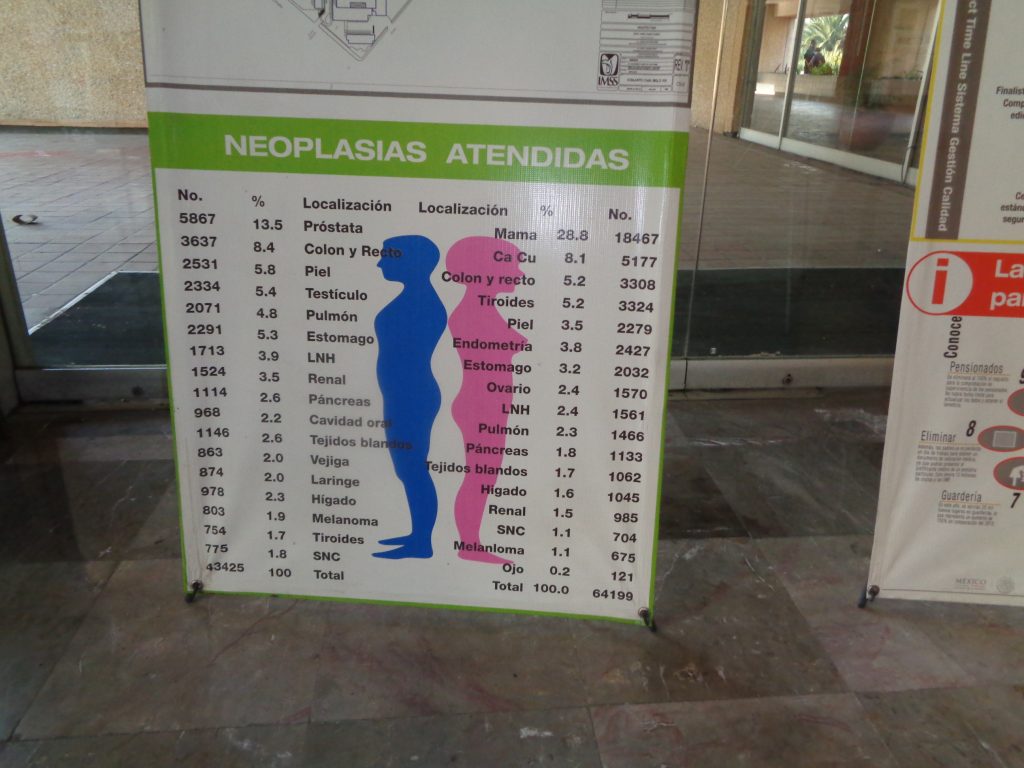
A group of cancer researchers in Mexico has lost their third paper over concerns about the integrity of their data.
Neither the new retraction, in the journal Hematology, nor the previous two, cite misconduct as the reason for the removals. However, the statements do refer to lack of reliability of results, “ambiguities and inconsistencies” in the findings and other serious issues.
The first author on each paper is Agustin Avilés, whom the Hematology article listed as being with the National Medical Center in Mexico City.
According to the retraction notice:
We, the Editor[s] and Publisher of Hematology, have retracted the following article:
Avilès, A, Nambo, M-J, Calva, A, et al. Adjuvant radiotherapy in patients with diffuse large B-cell lymphoma in advanced stage (III/IV) improves the outcome in the rituximab era. Hematology. 2019;24:507–511; DOI:10.1080/10245332.2018.1423880
The above article has been retracted as a result of concerns regarding the data upon which the presented research has been based. After re-examination and several independent expert reviews the consensus is that the data and results are not reliable and therefore the article must be retracted. The authors have agreed with this decision.
We have been informed in our decision-making by our policy on publishing ethics and integrity and the COPE guidelines on retractions.
Avilés was first author of a 2004 paper in Leukemia & Lymphoma, which the journal retracted in 2013. The notice includes more information than the one in Hematology:
In late 2012, serious concerns about the accuracy of some of the content of this paper published eight years earlier were raised with the Editors. After further investigation and an independent expert review, the Editors contacted the corresponding author seeking clarification.
Upon careful re-evaluation of the data as published in 2004, and consideration of the response from the corresponding author to our queries, the current Editors concluded that the report lacks the required scientific and analytical rigor for publication.
This decision was, in part, due to a lack of clarity and potential subjective interpretation of definitions of Complete Response within the study and how this may have influenced patient inclusion or exclusion. However, there were also issues related to the statistical analyses and interpretation of results. In addition other ambiguities and inconsistencies lead to doubts about the accuracy and robustness of the conclusions.
Unfortunately, the extensive changes necessary to potentially address all of these issues cannot be dealt with in a corrigendum and would require submission of a new manuscript. The decision as to whether this option is pursued rests with the author. It is important to note that these enquiries have not established any evidence of deliberate scientific misconduct by the authors.
The article is herewith withdrawn from all print and electronic editions.
The Leukemia & Lymphoma paper was cited 11 times before being retracted, according to Clarivate Analytics’ Web of Science, and nine times since it was retracted.
Avilés and colleagues also lost a 2012 article in the International Journal of Radiation Oncology*Biology*Physics. The retraction notice for the paper, “Randomized clinical trial to assess the efficacy of radiotherapy in primary mediastinal large B-lymphoma,” reads:
We regret to announce that we must retract this article because errors have been identified in the publication involving several parts of the study including extraction of data, statistical analyses, and interpretation of results. Unfortunately, such extensive changes cannot be addressed in a corrigendum and would warrant a new manuscript. It is important to note that this is not considered to be the result of scientific misconduct, but rather honest errors by the authors. We regret any problems that this article may have caused and retract it from the literature.
Avilès told Retraction Watch that editors had raised concerns over what seemed like an impossibly large number of cases of lymphoma at a single medical center. He said, however, that the authors’ institution, the Instituto Mexicano del Seguro Social, “is the unique national cancer center” for Mexico and that the team had “received about 450-500 new cases of lymphoma” per year, for example more than 3,000 between 2012 and 2017, allowing them to report on thousands of patients with the diagnosis.
Like Retraction Watch? You can make a tax-deductible contribution to support our work, follow us on Twitter, like us on Facebook, add us to your RSS reader, sign up for an email every time there’s a new post (look for the “follow” button at the lower right part of your screen), or subscribe to our daily digest. If you find a retraction that’s not in our database, you can let us know here. For comments or feedback, email us at [email protected].